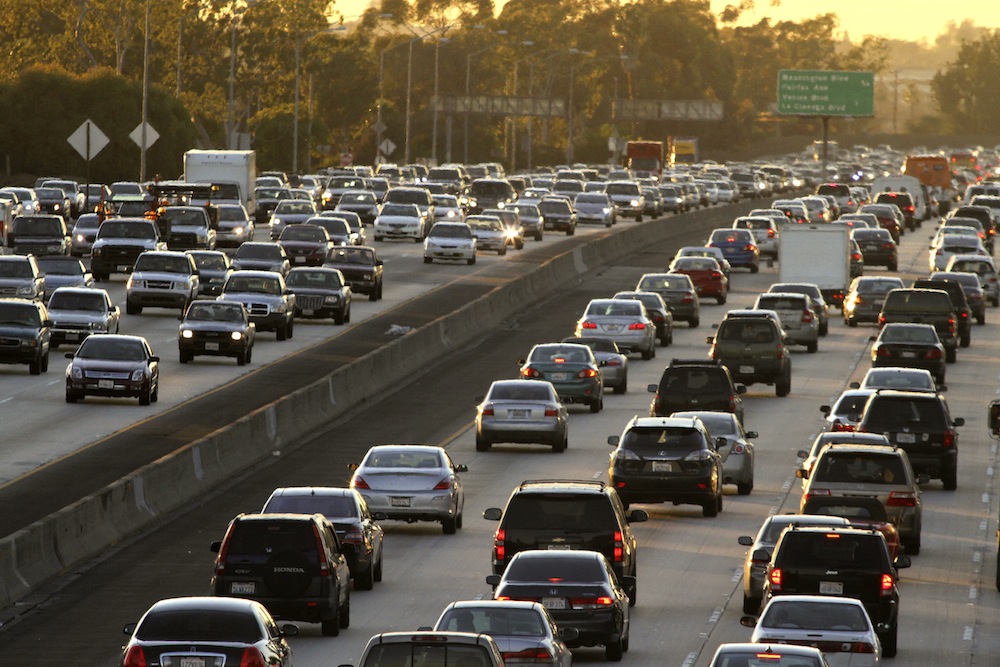It’s been several months since the gridlocked Congress has done anything to damage the nation’s economy. In today’s Washington, that’s considered a winning streak.
But this streak may soon be coming to an end, as the July 31 deadline to fill the $8.1 billion hole in the federal Highway Trust Fund quickly approaches. If Congress fails to patch the hole, it could mean the abrupt stoppage of 100,000 construction projects around the country that help support 700,000 jobs, according to Chris Kreuger, an analyst with Guggenheim Securities.
This battle over the trust fund is just the latest in a series that date back to 2005, when a combination of factors like Americans driving less and increased vehicle fuel efficiency halted the growth of the fund. Since that time, the Feds have limped along using a combination of short-term fixes and budget gimmicks to fund the federal government’s commitments to the states to maintain the nation’s transportation infrastructure.
But nobody has been able to figure out how to permanently fund these initiatives. Doing so would require either raising the gas tax, finding other sources of revenue, or reducing the amount the federal government spends on transportation infrastructure and relying more on state funding for those needs.
The most likely scenario in the short term, according to Kreuger, is that Congress will kick the can down the road again and finance the trust fund with a combination of budget and accounting gimmicks, like allowing employers to delay contributions to pension plans, thus increasing their taxable income. All of this will allow members of Congress to claim they haven’t raised taxes and will do nothing to actually solve the problem at hand.
There is some bipartisan support for simply biting the bullet and raising the gas tax, admitting that Americans are simply spending less money on gas and therefore must pay more per gallon to maintain the roads they drive on. But a look at the history of gas tax increases and the fight over how to fund transportation infrastructure should scare a majority of Repbublicans, and therefore Congress overall, from supporting higher fuel levies.
Though today’s Washington is often portrayed as singularly fractious, battles over funding the highway system have always been brutal. In 1982, President Reagan and a lame duck, bipartisan Congress decided to increase the gas tax from 4 cents to 9 cents per gallon, in addition to raising taxes and fees on diesel-powered trucks. The deal was a tragedy for true believers in Reagan’s vision of a smaller federal government. Reagan’s budget director David Stockman labeled the administration’s agreement to the hike as one of the primary events that spelled the failure of the so-called “Reagan Revolution.”
The reaction from the public wasn’t a whole lot better. The increased taxes were felt hardest by the independent truck industry, which engaged in a prolonged—and ultimately violent—strike during which a 33-year-old trucker was killed by a sniper’s bullet in North Carolina.
Eight years later, the gas tax was raised again in a budget compromise between President George H.W. Bush and Congressional Democrats. The increase was a violation of Bush’s campaign pledge of “no new taxes,” which his opponents used to hammer him during his unsuccessful 1992 reelection effort. Georgia Representative Newt Gingrich used his opposition to the tax increase as a launching pad for his national political career a couple years later. Since that 1990 vote, no Congressional Republican has voted for a tax increase of any kind, whatsoever.
Meanwhile, there is a reasonable argument for the federal government to get out of transportation infrastructure funding altogether. The states actually own and operate the sections of the national highway system within their borders, and states typically have a lot of leeway when deciding how to spend federal tax dollars used to fund highway projects. Conservative Republicans like Utah’s Mike Lee ask, why not just leave the responsibility for funding transportation systems with the states as well?
Of course, there’s plenty of backing in Congress to maintain the status quo, even from Republicans like Tennessee Senator Bob Corker, who recently announced his support for raising the gas tax to fix the Highway Trust Fund. Keeping transportation funding flowing through Washington would give Congress more control over the states, as local governments are often induced to adopt all kinds of policies to guarantee transportation funds. And some transportation advocates believe that transportation policy is best set at a national level.
But given the rightward shift of the Republican Party, and the likelihood that the GOP will gain seats in Congress and possibly take over the Senate in November, there’s little reason to believe that strengthening the federal government’s control over transportation policy will gain support in Washington over the next year. Democrats will have their hands full defending programs like Obamacare, which are dear to their base, and may see transportation funding as an issue they’re willing to compromise on.
Of course, somebody has to pay to maintain roads, and states like New Hampshire, Maryland, and Indiana have stepped up to the plate in recent years and increased their gas taxes to come up with that funding. Nevertheless, don’t expect a federal tax hike any time soon.
